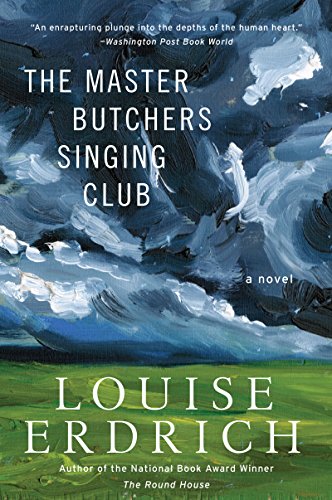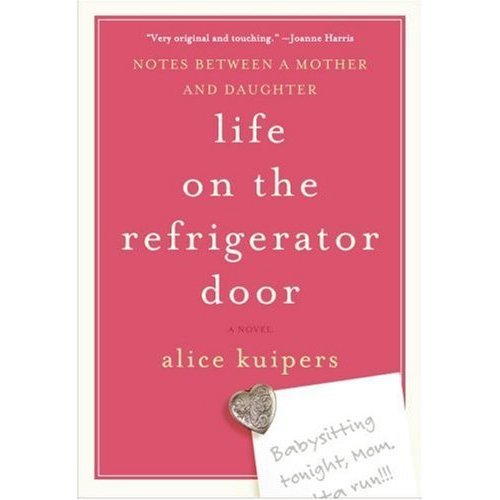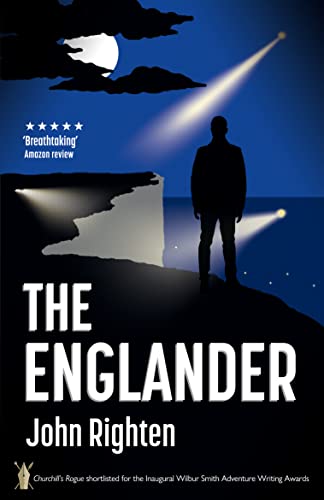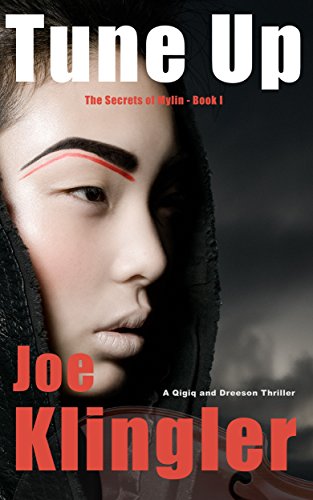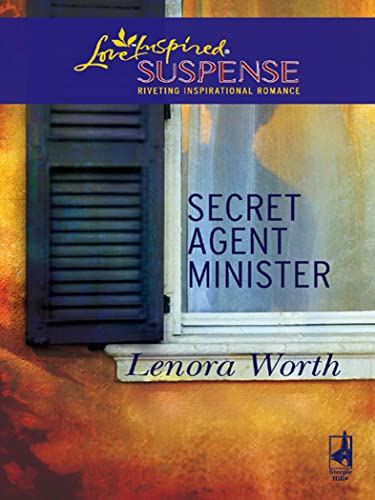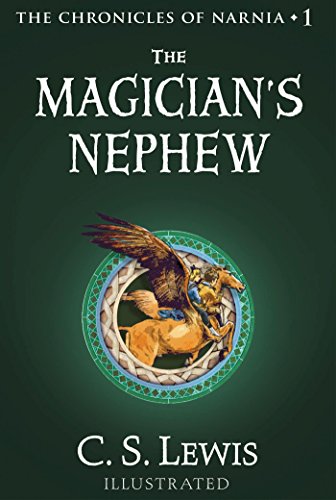LETTER FROM H.C.
8th August 2010
I pray, dear friend, that upon finding these, my memoirs, you will have patience with me. Understand, I urge you, that these thoughts were written hastily over a long period. The despair and cynicism that sullies the opening reflects my disillusionment upon returning to our mundane world.
I had thought to remain on Thanatos, revelling in my strength and purpose, and thus to find myself trapped in Eastbourne with my imperfect flesh and muddied mind I sought the defence of bitterness. I did not expect to see Thanatos again and in time I doubted its veracity. After many months, I began to chronicle my adventures, fearing all the while that they were born of my own imaginings.
I surmised that my wranglings with Dr Blightey in Wales, the illusions, the strange happenings, the narcotics and my obsession had conspired to generate this dual fantasy life. To prove my theory and to clarify my thoughts, I set about writing the whole fantastic tale, to which I now add this note. This I include should you chance upon my manuscript whilst I am absent; you see, I have journeyed once more to Thanatos, and this time I know how I shall get back.
It is such a blessed release to travel once more in that land of giants, to feel the power of my perfected frame and the sense of a destiny that matters. I hope I am able to record more: I do not wish to cut the connection with Earth, nor with you, dear friend – whoever you are that reads this – for I wish to impart a message of hope. There is so much more; so much to discover.
If I fail to return from this trip, if I should fall to the powers that rule on mighty Thanatos, I beg that you will preserve my story. I might die, but let not hope die with it. I have been blessed with high adventure and I cannot accept that it is mine alone.
Ever yours,
H.C.
THE FIRST ENTRY
I have decided to record the strange events of the last decade in an attempt to render them meaningful. Already, I sense the futility of such an enterprise, the reduction to rationalistic comprehension of experiences that are beyond the jurisdiction of words. Nevertheless, the compulsion lingers, the burning need to compress the disparate totality into a conceptual framework, a neatly packaged prerequisite for my next foray into undiscovered country.
For those who may discover this confession when I have left the world of flesh, a brief introduction may be in order.
On Earth I am called Harry Chesterton. I am now forty-two years of age, a premature resident of the coastal town of Eastbourne.
My return to the town of my birth was always uncomfortably inevitable. I share with so many that tormenting loathing of my own blood, that age-old enemy of the living: the bourgeoisie. My birth was unremarkable, as was my education. My parents worked and yet were not, in attitude at least, working class. In spite of their need (or was it perceived as a need?) to work double the standard working-week, they never showed the least personality, that rich and bawdy character of the mythical working classes. For a time I thought that this was a regional distinction and that the true proletariat spoke with northern accents and scoffed mushy peas and mint sauce. But gradually, as my little noose of experience widened I began to see the working classes rooted gnomically in the flesh-and-now, adorning stalls and streets and pubs with an enviable, yet despicable, integration.
Much of my work, most of my striving, was simply a reaction to the insubstantiality of my freedom. Freedom was only ever an illusory liberation from the crumbling post-war morality. Free speech, free thought and free love were all so terribly disheartening. Whilst born a Catholic, to agnostic parents, I was educated C. of E. and baptised in psychiatry.
Mental Health was to be my field for seven soulless years, interspersed with desperate flights to the theatre where something always intangibly beckoned. At such moments, the icy fingers of psychiatry became visible around my throat and I would fight with great fury to escape them. But always, the gravity-well of consensus shepherded me down to normality.
It is a problem still, this war between fact and life. At present, I just about hold the Cartesian forces at bay by my clinging to the traditional hermitage of the artist, amongst the eaves of an attic flat on the lower side of town: Grove Road – an undulation of sleazy subterranean bars and pizzerias with a cockroach residency of pushers and alcoholics. I say this almost with affection, for they are my army of life against the ever-encroaching hoards of undeath.
So there you have my present, another dose of purgatory following great snatches of life-giving breath. Such are the moments I wish to record: those episodes of discovery, those peak experiences that would otherwise pass unnoticed down the U-bend of civilisation.
I
I had not long been at the University of Wales when I became aware of something stirring. My escape from psychiatry had been less than well planned but had carried with it the conviction of fortuitousness. There was virtually no transition from the sterility and mundane bizarreness of the acute psychiatric ward to the remote island of eccentricity that was Aberystwyth.
I remember the occasion of my first visit to the cafe in Pier Street. I was trying to find the much-maligned Dr Blightey who had been sequestered in this academic backwater for unspeakable crimes against the scientific community some twenty odd years ago. Although Dr Blightey seldom had anything to do with the university, it was the promise of his presence that had drawn me to the town. Having finally navigated the torturous enrolment and settled into my lodgings in North Road, I immediately set about locating the nefarious doctor.
I made tentative enquiries amongst the postgraduate community who congregated grubbily in the comparatively salubrious surroundings of Seren’s. Even then, with the life of the town but hours old to me, I sensed the quicksand pull of their half-existence, those shabbily dressed fops with their interminable research degrees stretching out till doomsday.
I was summoned to the table of the postgraduate pope himself, one Marius Vacek, a portly fellow sporting a ponytail and an enormous black woollen pullover. With the enviable charm of the socially adept (Marius had evidently spent the last fifteen years conducting his MPhil research from the window table of the most popular cafe in Aberystwyth) he poured me tea and questioned me with convincing interest about my life. My answers wilted to monosyllables after half an hour of relentless, silky interrogation. Marius, however, clearly did not like silence.
“So, in order to fully exploit the welfare loopholes, you must register as a part-time postgrad, sign on, and tell the job centre that you’ll only accept graduate jobs in the region of twenty thousand. You’re easily worth that with a degree, but you’ll be lucky to get three pound an hour in Aberystwyth; so you just keep signing on. Then, teach the odd seminar, which basically means play some obscure video, ask the students to discuss its relevance to whatever the subject is, and get the department to do a deal for cash in hand.”
I forced a wry smile and gazed out of the window, seeking a pause in which to gather my thoughts. Heavy rain splashed against the pavement whilst black clouds patrolled cumbrously across the pea-soup sky. And yet hordes of adolescent students strode to and fro with barely more than a T-shirt between the elements and their pockmarked flesh.
“The freshers are sooo bad this year,” Marius continued to rape my thoughts. “It’s the bloody principal’s fault, allowing the boyos from the valleyos in with poor grades just to keep the Taffia happy.”
“Do you know Doctor Blightey?” I interjected.
“Doctor Death, you mean? Sure. Everybody knows him. But, you’ve noticed? The farm-boy freshers? It’s like anyone can have a degree these days. Still, you probably know a degree’s worthless. You only start doing the real work as a postgrad.”
“Why’s he called Doctor Death?”
“Oh, some shit about necrophilia or something.”
A gust of cold air hit me as a group of young girls entered the cafe, uniform in their jeans, Doc Marten’s, and exposed frozen mid-rifts. Marius immediately switched his attention from me to the female freshers so I quietly took my leave of him and went back out into the street.
I roamed aimlessly for a time, gazing up at the hidden apartments perched vertiginously atop the shops and tea rooms; those places that are seldom noticed unless consciously sought. Each flat, each room, it occurred to me, was occupied, probably by second year undergraduates living at this altitude of incognito. Above and beyond the rooftops I glimpsed an ancient grey-stone building atop the cliffs that loomed over the crachach, the abode of the wealthier residents of Aberystwyth. It peered down upon me like a sentinel from another time, a sombre anachronism that fuelled my imagination with fantastic images of gothic horror. I determined to visit this place at a later date, certain that I would be disappointed when it turned out to be modernised for the purposes of academia or weekend Christian workshops.
I eventually gave up my search for Dr Blightey at a dirty little cafe in Pier Street. The faded hand-painted sign outside boasted the sale of goods inappropriate to a cafe, an indication of the building’s longevity. Its brown facade and clouded full-length windows reminded me of The Old Curiosity Shop, so it was with some trepidation that I crossed the threshold.
The place looked empty. I stood before a misted-over glass counter, barely able to make out the dried up and rather sorry-looking offerings on display. Hand-written signs described vegan and vegetarian preparations, and yet I was certain I spied liver pate at the front of the display cabinet. I rang the small brass bell that stood next to the wrinkled pizza and was answered by a shuffling sound from the direction of the kitchen.
Flicking through the tatty menu, I deduced that the cafe was called Y Draig, the letters encircling a picture of a winged beast. The menu appeared to be quite old, and yet the prices were ludicrously low, at least a third of the prices asked by Seren’s.
“Yes please?”
I was startled by the voice, a peculiarly shrill piping monotone. I’d heard no one approach. Before me stood a tall man of middle age dressed shabbily in a faded corduroy jacket and half-mast trousers. I started to reply, but my speech was arrested by his vacant stare: like the window and the display case, his eyes seemed to be frosted over.
I managed to order a tea, but the fellow just stood there, slightly inclining his head. It occurred to me that he was a leftover of the early days of my old profession: a lobotomised schizophrenic, condemned to a zombie-like half-life. His eyes vibrated rapidly, a sort of lateral blinking, before fixing me once more with the cloudy stare.
“I shall have to fetch some tea bags,” he piped before coming round the counter. He strode straight at me and I backed away sharply. Carrying on past me, he opened the door and disappeared down Pier Street. I was alone in the cafe.
Posters, browned with age, plastered the walls, their messages lost amidst their proliferation. Mostly they advertised engagements long since passed, evidencing a gregarious history within this ghostly cafe.
A thud from somewhere downstairs distracted me from my wall reading. I listened silently and was sure I heard a faint sliding sound, as if something heavy was being dragged across the cellar floor. I determined to investigate but was immediately arrested by the opening of the cafe door. The piping fellow stood rigidly in the doorway clutching a handful of tea bags, and for a moment eyed me with a sideways stare before jerking back to life once more and heading back behind the counter.
The tea was tepid, with the slightly strawberry taste of off milk. I was about to leave when the door opened again and another man entered, small in stature with a great mop of snowy hair and an uncropped beard.
“I was just debating with a couple,” he said cheerfully, as if we were old friends, “as to whether or not there is any such thing as Absolute Truth.”
“I suppose it depends on what you mean by that,” I offered politely, sinking back into my seat.
He paused in assessment of what I had said, apparently turning my statement over and over in order to extract the profoundest exactitude.
“I’m not sure I agree,” he frowned. “When one speaks of the
Absolute, one is being very specific.”
“Certainly,” I continued in my politeness, “but the concept
alludes to an implicit reductionism.”
Once again there was a pondering pause as if he had to dredge up a reply from interminable depths. Either that or the fellow wasn’t very bright and it took him a long while to work out my meaning.
“But is the Absolute God?” he asked with a smile.
“Are they synonymous, you mean?”
“You see, I would always question one’s need for a belief in God. I felt that the couple I was talking to were religious in some way.”
It appeared to me that his earlier conversation had unsettled him, bringing to the surface those age old existential questions which were the grail from which I drank.
“‘I pray for the honesty of death,'” I quoted, immediately sensing from the sparkle in his eye that I had somehow lost a pawn.
“Go on,” he prompted.
“‘I pray for the honesty of death
Calm and unfearing,
Gently endearing,
Free from the prophets
Buried in the communion of saints.'”
“Otto Blightey,” he observed correctly.
“Indeed,” I replied. “You’ve read him?”
“Not really. He comes in from time to time.”
I stood, perhaps a little too eagerly.
“I would very much like to meet him.”
“He’s not well liked by the locals,” said the snowy haired man as he moved behind the counter to begin slicing up the wrinkled pizza.
“That doesn’t surprise me,” I remarked. “Genius is often reviled.”
“I don’t suggest that anybody denies his genius,” he looked up from the pizza, the knife poised for the next precision slice. “But there are those who retain a degree of superstition.”
“Perhaps they shouldn’t believe all they read in the papers,” I quipped.
Again there was silence whilst he chewed my thoughts, masticating them into a reply.
“In this town,” he bit his lip in seriousness, “rumours tend to start with the academics.”
We continued to talk about more mundane matters. I had a cup of Earl Grey and browsed through the local rag as Alwyn (for he had made me the gift of his name) introduced me to the tedium that was recycling. I had the impression that he so organised certain aspects of his life (particularly the disposal of waste, for which he had seven different coloured refuse sacks) as to condemn him to a crippling neurosis, and yet, judging from his personal hygiene and the shoddiness of his business, other aspects were in stark diametrical opposition.
As I wandered back towards North Road some two hours later, I realised that I had found the hub of Aberystwyth in that dirty, run-down little cafe. I was mesmerised by Alwyn’s sharply polarised contradictions, and the way in which his cafe seemed to sprout from his personality.
That night, I wandered down North Road to the promenade and on from there to the foot of Constitution Hill. There was an eeriness about its artificial illumination from unseen lanterns that emphasised the path of the cliff railway and the whiteness of the camera obscura at the summit. I looked up and to the right at the old grey building I had spied earlier in the day. There was a light on in the tower that called strongly to my imagination. I decided that I would visit the place in the morning.
As I turned to leave, I was startled by the presence of a tall figure behind me.
“It was once a monastery, you know,” he spoke in a soft and genial Irish accent. He stepped towards me and I was able to discern that he was a Catholic priest, dressed against the chill air in a long black overcoat and brown Ushanka hat.
“What is it now?” I asked, still gazing upwards.
To my surprise, the priest turned and started to walk back down the promenade.
“It is a place of study, I am told,” he said. “God bless you, brother, and good night.”
I did not sleep at all that night, or so it seemed. The cotton-wool visage of Alwyn dominated every dreamscape, waving innumerable petitions in front of me, petitions that would save the planet in all manner of ludicrous ways. The monastery was there as well, looming up before me whichever way I turned. My dream-self panicked, its thoughts scattering like a shoal before a shark, and yet, on waking, I wasn’t tired. Instead, I was full of zeal for the quest ahead. I was determined to climb up past the crachach and explore the ancient building.
II
Dawn brought more rain and a gusting wind that seemed to concentrate its assault on the quaint French-windows at the foot of my bed. The windows withstood the onslaught, but alas, irritated me with their clattering.
I broke my fast at the window-seat in the lounge, searching for the sunrise through the obscuring canopy of clouds. The house was still in silence, my studious fellow tenants not tending to surface until après midi. Their initial awakening was always followed by a protracted period of afternoon breakfasting, arguing about whose turn it was to fetch the daily paper, and preparing for a late afternoon gathering in Seren’s.
The sink was overflowing with unwashed dishes, and so it was with great skill and care that I balanced my breakfast plate and mug atop the stack. It was a dreadful place to come back to with all its accumulated waste. The stench of rotting vegetables came from the splitting black bin-liner; great puffs of dust from the carpet greeted my every footfall, planting asthmagenic spoors in my lungs. The chairs, tables and floor were strewn with the pages of a week’s worth of news that would one day be read if I only had the time. I resolved to hire a cleaner, perhaps from amongst the undergraduate community, for mess was intolerable, both to tidy up and to work in.
After washing and dressing I made my way downstairs to collect the morning post. Besides one rather unsavoury looking bill, I had nothing but junk mail and, as was my wont, I felt a pang of disappointment, of disconnection from the world.
I opened the front door, causing a hand-written note to fall to the floor. Snatching up this most unexpected prize I looked straight for the signature. It was from a Father Cornelius McBride, presumably the tall priest from the night before. I sat myself down on the stairs and read:
White Friars,
Russell Street.
My Dear Mr. Chesterton,
Forgive my imposing upon your privacy in this manner, but I felt it my overwhelming duty to communicate certain matters to you as urgently as possible. I know it must be somewhat of a shock for you to receive such a letter from someone whose existence you were not even aware of until our brief encounter yester-evening. Your name, I must confess, has been known to me for some time and I pray that you will forgive my not approaching sooner, and in a less clandestine manner.
I’m ashamed to say that the reason for my discretion has been concern for my own safety and it was not until I actually saw you in the flesh that I realised how un-Christian my reticence has been. Suffice it to say that the matter which has led you to Aberystwyth has certain far-reaching consequences. Some of the ‘fallout’ of this situation has long since settled into the fabric of town life as a dark and brooding presence. Forgive my obscurantism, but I really can bring myself to say no more at this time.
I beseech you to pursue the matter no further, but anticipating your unwillingness, or inability, to give up the chase, I implore you to call upon me at the chaplaincy before visiting the old monastery.
Yours in Christ,
Fr. Cornelius McBride O.Carm.
Apparently the priest was a Carmelite, part of a religious fraternity that had originated on Mount Carmel in the Holy Land during the Crusades. I had come across the Order in my reading of the poetry of Saint John of the Cross, a marvellously dark mystic whom I had long since regarded as one of the few sensible adherents of religion. John had led the friars along the lines of reform drawn up by his contemporary, Teresa of Avila, a reform which, after both their deaths, led to the splitting of the Order. Interestingly, the reformed Order, the Discalced Carmelites, went on to draw up entry criteria which would have excluded their founder, Teresa, on account of her Jewish ancestry!
It was from John of the Cross that I first learnt of ‘the dark night of the soul’, a total immersion in what Crowley termed ‘the Abyss’, where all is dark: the senses, the intellect, the emotions, faith, and even God. The possibilities, for the traveller in the night, are twofold: either union with God, to whom darkness is light, or depression and dissolution in the void.
I left the house shortly after nine and ascended to the crachach, the domain by means of a narrow, steep and muddy track. A gale was blowing leaves and crisp packets about my face like angry flies but I pressed on nevertheless, determined to make a quick reconnaissance before calling on Father McBride.
My next recollection is of the tall priest answering the door to me. How I came to be at the chaplaincy I could not tell, but clearly, due to my dishevelment and fatigue, some time had passed since my trek to the monastery.
“You could not wait, I see,” sighed Father McBride. “Come inside, I’ll make us some tea.”
Bewildered, I saw no alternative to following him down the hall and into a small dark kitchen at the rear of the building.
“Perhaps I have failed in my persuasiveness,” said Father McBride, “for in spite of my protestations, you sought to learn the reality empirically.”
– $189

